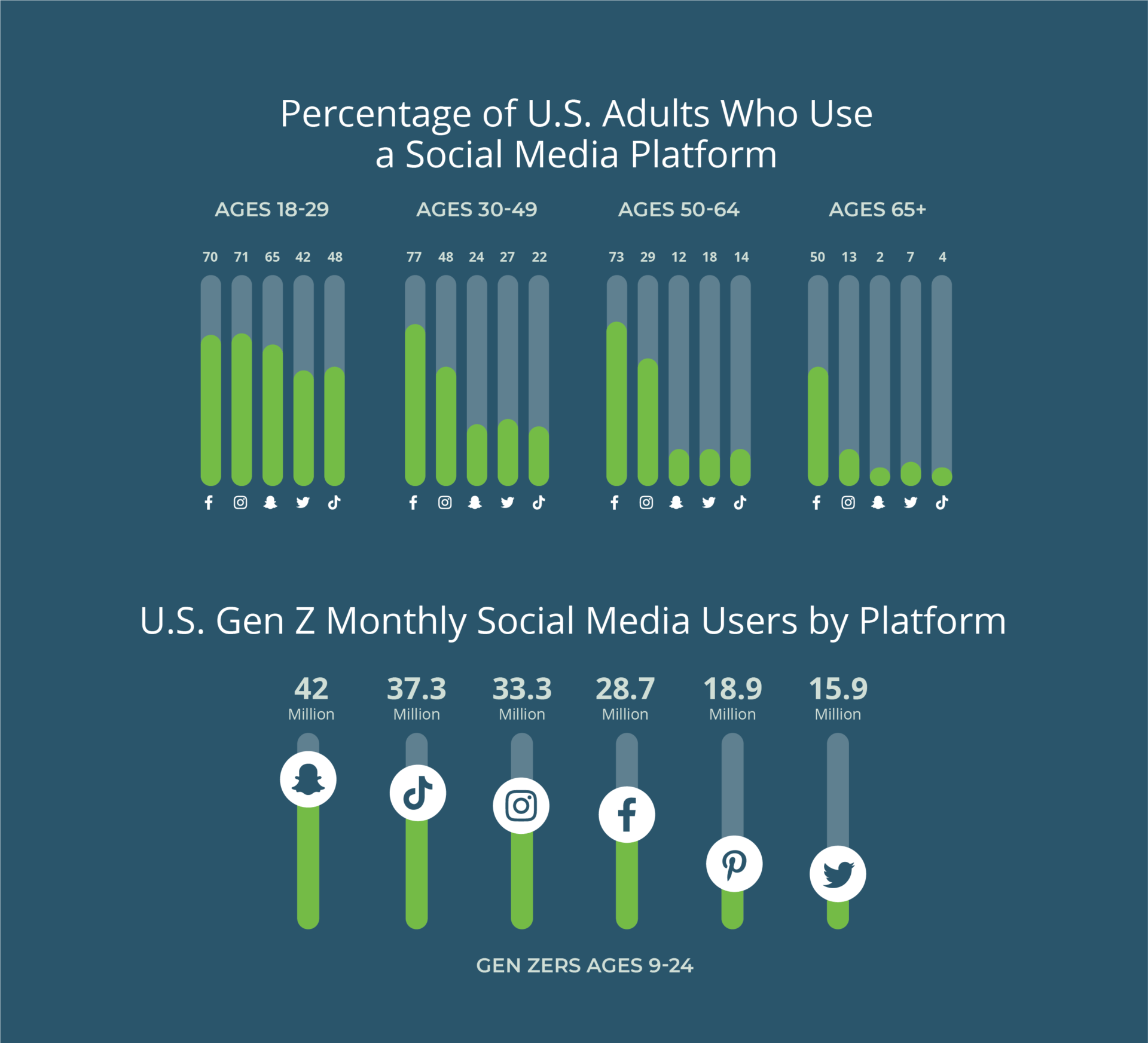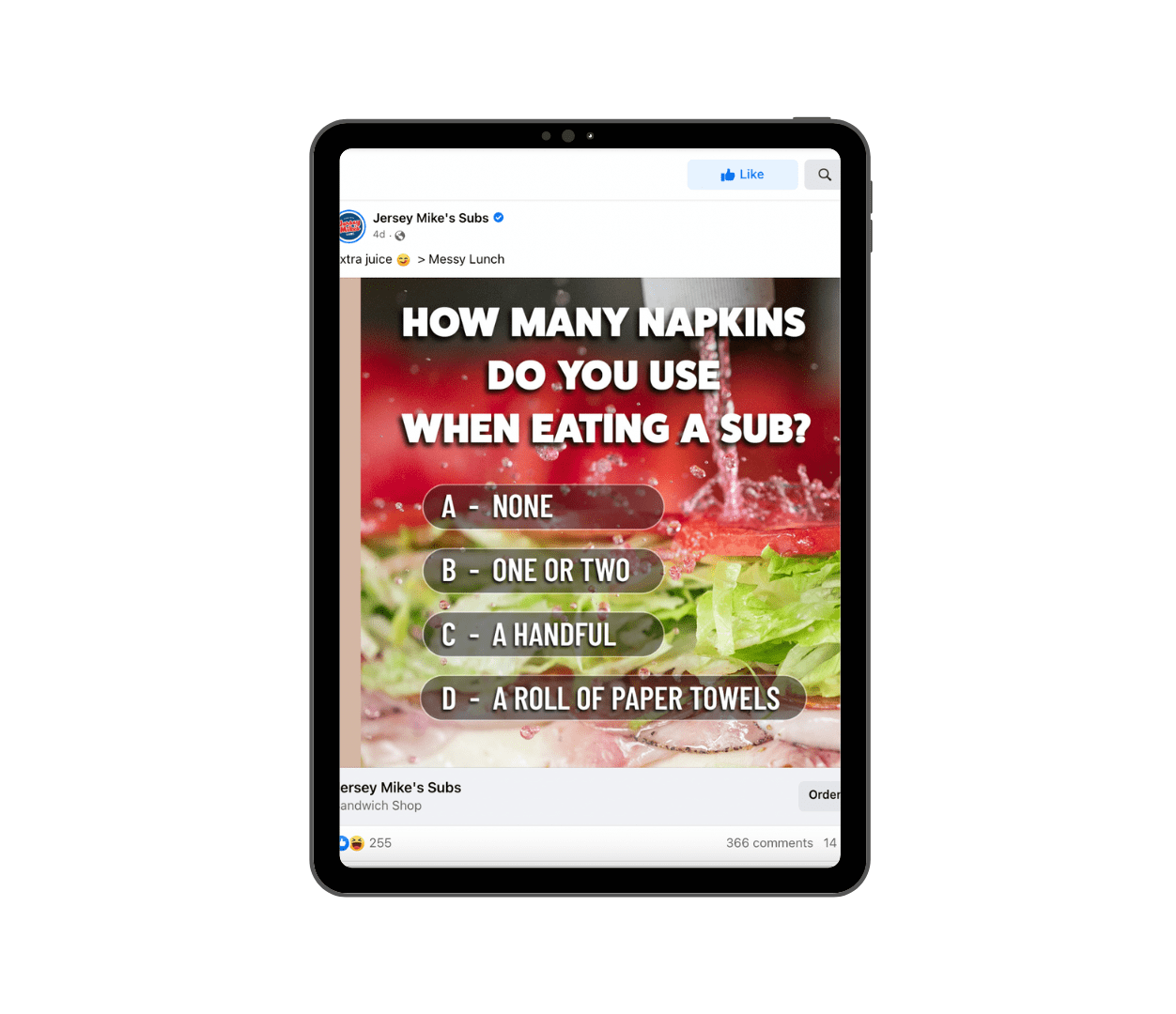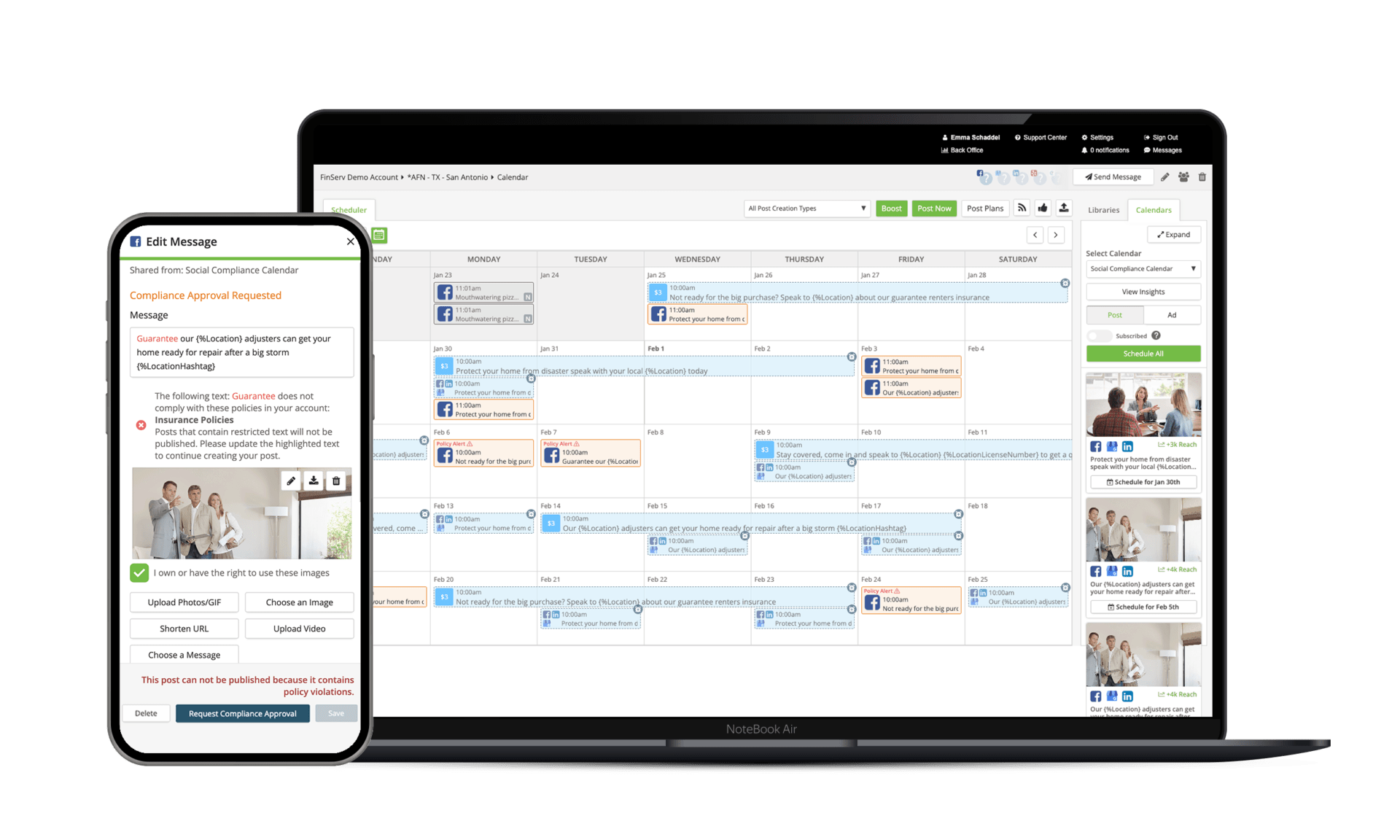What Are AI Agents? And Why Are They Critical to Local Marketing Success?
Your Guide to Multi-Location Social Media Marketing
Your Guide to Multi-Location Social Media Marketing
As a multi-location marketer with multiple business locations, you likely understand the importance of a robust social strategy. While a presence on your corporate social accounts is non-negotiable, a local social presence is equally important. Research shows that localized content receives 12x the engagement than non-localized content.
Whether your brand is just getting started with a multi-location social media strategy or you have one in place that needs optimizing, this blog can help! We’ll dive into:
- What a local social media marketing strategy entails
- Tips for creating one effectively
- What to consider when choosing a local social solution for your business.
What’re you waiting for? Let’s get into it!
Multi-Location Social Media Marketing Explained
While you’re already likely familiar with the term social media marketing, let’s briefly review it to ensure we’re on the same page. Social media marketing is the use of social media platforms like Facebook, Instagram, and others to promote your brand and its products or services.
Multi-location social media marketing is similar but applies to businesses with numerous locations. With multi-location social media marketing, you’re promoting your brand and what you sell at both the national and local levels.
For instance, using Facebook as an example, your brand would have and leverage a corporate Facebook page and separate social pages for each business location.
Six Factors to Consider When Building A Multi-Location Social Strategy
Now that we’re clear on what multi-location social media marketing is, let’s dive into how to build an efficient strategy. You should consider these six factors when developing your strategy across business locations.
1. Select Who Will Be Managing the Strategy
Before you dive into the details of your local social strategy, it’s essential to determine who will be responsible for managing it. As a multi-location business, you have three options.
- The centralized model is where corporate teams primarily run all marketing efforts.
- The decentralized model is where individual business locations run all marketing efforts.
- The hybrid model is a combination of the two above. Both corporate and individual business locations collaborate to run marketing efforts.
We typically find that the hybrid model is the most effective. It combines the best of both worlds: the power of local combined with the oversight and support of corporate. It can get overwhelming if each local business is entirely responsible for its marketing efforts.
Regardless of what your multi-location brand selects, it’s crucial to understand who will be responsible for what. This ensures that nothing falls through the cracks and keeps local and corporate teams accountable.
2. Consider Which Social Platforms to Leverage
Once you’ve selected who will manage your multi-location social media marketing, it’s time to choose which platforms to focus your efforts on. If your brand already has a presence on some platforms, great! If not, there are a few factors to consider when deciding.
Facebook is still the largest social media platform, boasting an impressive three billion monthly active users per month. Thus, you need a local presence on Facebook.
Additionally, it’s essential to consider your target audience’s demographics, like age, ethnicity, interests, gender, income levels, and more. Below, you’ll find a breakdown of the most popular social media platforms for each age group in 2021.

Considering the factors above will help ensure your multi-location brand chooses the right platforms for your target audience. If you’re just starting with a social strategy, choose one or two platforms. You can expand or explore other options after you test and understand how those are performing.
3. Speak to Your Local Audiences
After finalizing which platforms your brand will leverage, you can start thinking about the types of content you want to share. As mentioned, localized content performs 12x better than non-localized content, emphasizing the need to adjust social content depending on location.
While localized content is essential, it’s also important to consider the types of content your target audience will want to see. For instance, Gen Z gravitates towards short videos, with 40 percent preferring reels, stories, or TikTok videos when seeing brand ads on social media.
Additionally, SOCi research found that on Facebook, posts with videos have twice the correlation with engagement as posts with photos. Incorporating video content into your social strategy is important, but what are other types of engaging content your brand can post?
When planning content at the local level, you can share various types of content, including:
- Special promotions or discounts that are happening at your location.
- Positive customer reviews from local consumers.
- Pictures of live or virtual events happening at your local store.
- Example: If you hosted a Zoom wine-tasting event, share those images on your local social media accounts.
- Current events that are happening in your local area.
- Polls or quizzes with questions relevant to your local audience
- Example: You can ask engaging questions like their favorite outdoor activity in their city or industry-related questions.
- Ways your local business is giving back to the community.
- Example: If your local business has an annual food drive for your local community or collects coats for kids during winter, highlight these events on your local social channels.
Below, you’ll find a great example of Jersey Mike’s Subs posting a question that drives engagement at the local level.

Speaking to your local audience is a must. For additional tips on building a robust multi-location social media marketing strategy with localized content, download our Localized Social Content Guide.
4. Determine Posting Frequency
After you’ve determined the type of content your multi-location brand will share locally, it’s time to think about posting frequency. There is no magic formula when it comes to how often your brand should post. However, you should post consistently because loyal customers are expecting content.
Similar to audiences preferring different social platforms, people may prefer different amounts of content. What we can use as a guide of reference, though, is data included in our white paper, The High Cost of Invisibility for Multi-Location Enterprises.
This white paper analyzed how top multi-location enterprises perform in the three areas of localized marketing: local search, local social, and reputation management. Looking at the local social data, we found that on Facebook, the average multi-location enterprise posts nine times per month, while top performers post more often at an average of 14.4 times monthly.
To stay in touch with your target audience, your multi-location brand needs to post as often, if not more often, than competitors in your industry. Once you’ve decided on posting frequency, you must ensure your locations know and follow these guidelines.
5. Stick to Brand Guidelines
Speaking of guidelines, maintaining consistent brand guidelines across business locations is a must in social media marketing. Having a company-wide voice, tone, and brand guidelines for social media will help customers and individual business locations.
From a customer standpoint, brand guidelines help boost brand recognition. If a customer is visiting another city and sees one of your local stores on social media with the same logo, color scheme, and tone of voice, they’ll be more likely to connect it to your brand.
Similarly, these guidelines will help your brand maintain consistency across your social media channels while also helping to ensure you’re delivering your central message correctly.
6. Analyze Performance and Make Optimizations
Analyzing performance is the last component of a comprehensive multi-location social media marketing strategy. You’re doing your brand a disservice if you don’t take the time to understand and report on which components of your strategy are working well and where there’s room to improve.
For instance, if your local social engagement is falling flat at a few locations, it’s worth testing various types of content to find what boosts engagement.
Similarly, you can look at top-performing locations and determine what they’re doing differently to achieve success. Then, have other locations mirror those tactics.
Regarding social media, your brand should look at performance metrics weekly, monthly, or quarterly. Performance metrics for social media can include, but are not limited to, engagement rates, follower counts, impressions, and more!
Your brand can make optimizations after seeing a trend stay the same for a month or two. Don’t be quick to optimize every time you see a dip in performance — those are to be expected from time to time.
What to Consider When Choosing a Multi-Location Social Media Solution
Managing social media efforts across 100s or even 1,000s of business locations is challenging and time-consuming as a multi-location brand. Finding a solution that will help manage these efforts at scale is important. That’s where SOCi comes in!
SOCi is the CoMarketing Cloud for multi-location enterprises and provides one central place to automate and scale marketing efforts, including local social. SOCi’s social media management solution enables multi-location businesses to manage and deploy localized content at scale while maintaining brand consistency at enterprise and local levels.

With SOCi Social, your brand can publish to all major networks to amplify audience engagement with localized shareable content.
Taking it a step further, the tool allows you to analyze account, group, or location performance to ensure that your content gets the most engagement for your brand.
Ready to level up your multi-location social media marketing strategy? Request a demo with SOCi today!







